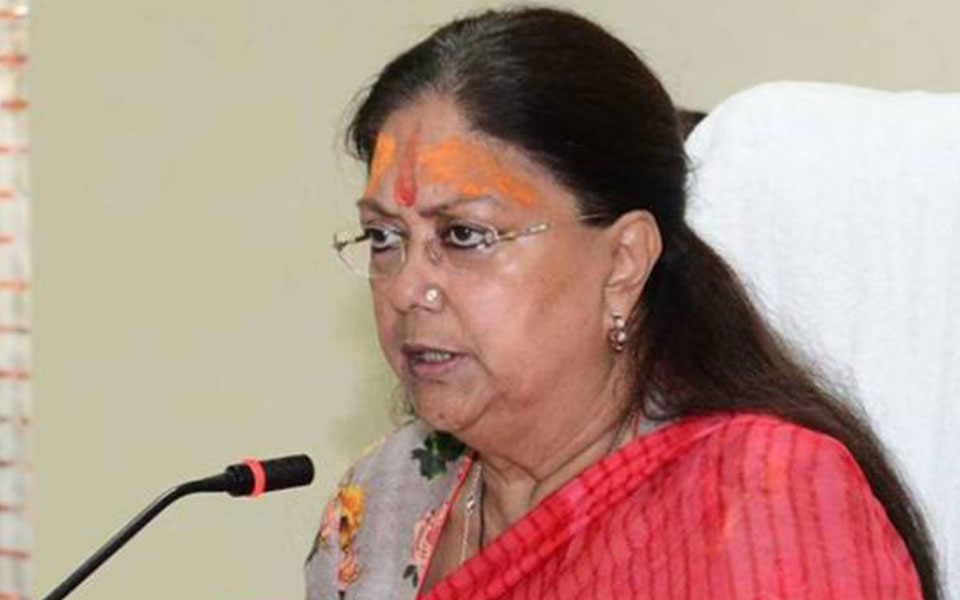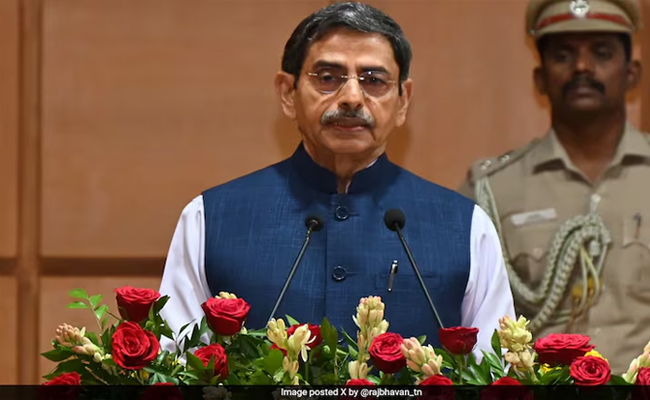Jaipur, June 17: Hitting out at Rajasthan's Vasundhara Raje government for only being engaged in accepting the fitness challenge passed on by Prime Minister Narendra Modi, state Congress chief Sachin Pilot said that if the Chief Minister is serious on accepting any challenge, it should be of putting a complete check on farmers' suicide.
He termed it as a sad situation that right from the Prime Minister to Central Ministers to state ministers, everybody seems engaged in passing the fitness challenge, just to garner publicity, while the critical issues of the nation are being put aside.
Pilot also slammed the "insensitivity" of the state government, holding it responsible for the recent suicide committed by two farmers in Hadoti region.
"In the election year, the government has promised to waive off farmers' loan worth Rs 50,000 which in general is too less an amount as they (farmers) have huge loans on their shoulders. The government has failed to arrange the promised funds of Rs 8,000 crore to waive off the loans and hence now loans worth Rs 200 crore can only be waived off with the limited funds," he added.
Pilot said that this "double-faced" attitude of the state government is triggering more suicides in the state, and also the government has failed to provide fair price to farmers' garlic yield which is yet another factor for the farmers committing suicide in big numbers.
Claiming that in the last one month, nine farmers have committed suicide in Hadoti region, which is the Chief Minister's constituency, he said that these have revealed the reality of tall claims made by the ruling government.
Let the Truth be known. If you read VB and like VB, please be a VB Supporter and Help us deliver the Truth to one and all.
After rapper and singer Santy Sharma's reaction to Khushi Mukherjee's provocative photo/video posts on social media, people on different platforms are now having a heated debate. The comments made by Santy were soon spread across social media and opened the door for conversations surrounding the type of content that is being posted by public figures on social media.
In his view, digital platforms provide a way to express themselves through creativity and art; however, he feels it is important for celebrities/influencers with a large number of followers to be mindful of how their content may be perceived by others. According to him, people who possess a large following online have a level of responsibility regarding the actions they display via their social media and should be cognizant of what type of example they are setting for the youth.
Lastly, creating art should inspire creativity as well as allow users to use their voices to support necessary change in society; therefore, creativity and expression through digital platforms should produce positive social change while still being aware of culture and society's expectations.
At the time of writing, Santy Sharma was discussing how online behaviour has contributed to increased rates of rapes, which stimulated much debate and debate online. Supporters have advocated for improved online etiquette, while others feel he was insensitive in his comments and contradicts the need for sensitivity on these sensitive issues. The controversy has gone beyond social media and increased debate regarding gender-based issues, the ethics of media influence, and the necessity to address serious crimes with appropriate awareness and sensitivity.
Meanwhile, Santy Sharma has also announced his upcoming single titled “I Don’t Care,” which is scheduled to release on 10 March 2026. The track will be available on his official YouTube channel and other major music streaming platforms, creating anticipation among fans who are eager to hear his latest musical release.





